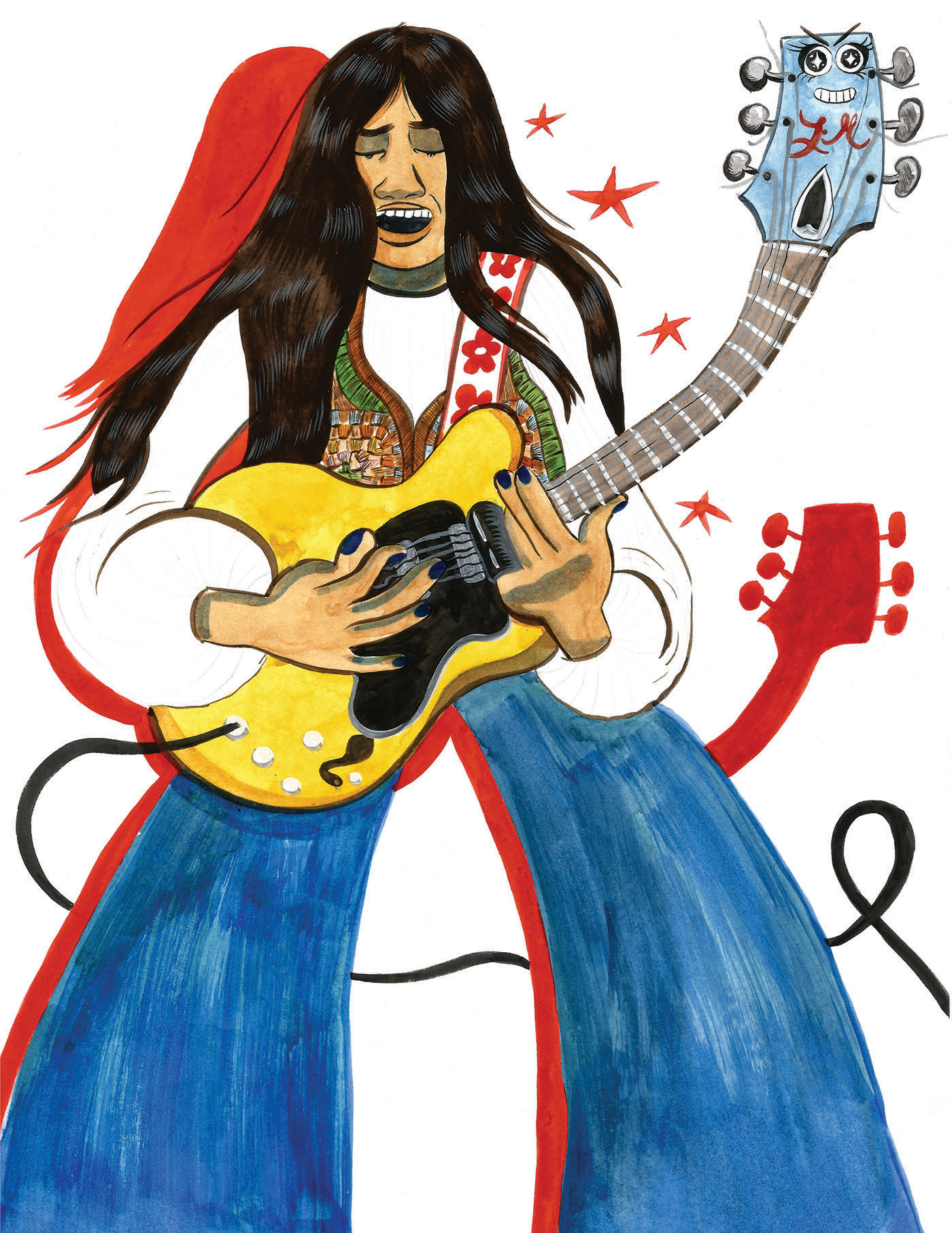
June Millington
Artwork By:
Tilly Barker
Words By:
Cecelia Tucker
Scroll Down


About

June Millington, born in 1948, grew up alongside her younger sister Jean in the Philippines before moving across the ocean to Sacramento, California in 1961. Though June was young, shy and had suddenly found herself living in a brand new place, she would find a strong and powerful voice in music when she began playing guitar, writing songs, and performing with her sister around town. In high school, Jean and June started an all-girl band called the Svelts, and by 1969, their skills and experiences had laid the groundwork for the creation of Fanny, the first all-woman band to sign to a major label.
Fanny was an unprecedented line-up in the music industry (a multi-racial, all-women rock group), meaning its members would face additional hurdles in getting produced compared to other bands in the same genre. Fortunately, June and Jean already had done all the background work for the Svelts – writing their own songs and booking their own gigs – so upon starting Fanny, June was prepared for the work it would take to be heard. Despite her experience, breaking barriers in any industry is not easy. June and her bandmates were forced to deal with the prejudices of racism and sexism, and while they were popular, impactful musicians, they never received the same level of recognition as many of their male peers.
Despite the frustration this caused for each of the band’s members, June saw the long-term importance of the change she was making with her sound and her place in the music world. The action of making space for herself, of combatting erasure and fighting for her own voice, was a reflection of the constant work of countless women to make themselves heard – everyday actions of resistance that paved the way for all women’s voices to ring through. While Fanny had to work twice as hard for recognition in the music industry, they didn’t go about it quietly. And beyond the thrum of the bass or the strike and slide of the guitar, it is the echoes of Fanny that helped an entire generation of female musicians be recognised.
Beyond using her voice to push for representation, Millington and her partner Ann Hackler also run the Institute for the Musical Arts (IMA), which has held music production camps for teenage girls since 1987. Through education, Millington continues to break down barriers for women.
Since the start of her career, Millington has set incredible precedents with her sound, and today she continues to provide the resources for all women to get their voices in the mix.







